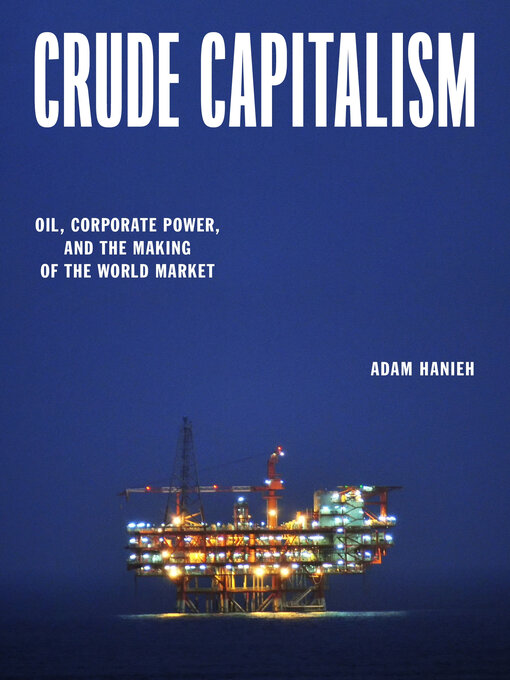This expansive history traces the hidden connections between oil and capitalism from the late 1800s to the current climate crisis. Beyond simplistic narratives that frame oil as 'prize' or 'curse', Crude Capitalism uncovers the surprising ways that oil is woven into the fabric of our modern world: the rise of an American-centered global order; the breakdown of Empire and anti-colonial rebellion; contemporary finance and US dollar hegemony; debt and militarism; and the emergence of new forms of synthetic consumption.
Much more than an energy source or transport fuel, oil has a foundational place in all aspects of contemporary life - no challenge to the fossil fuel industry can be effective without taking this fact seriously. Crude Capitalism maps the varied geographies of oil, including the rise of OPEC, the importance of revolutionary and Post-Soviet Russia, the crucial role of African upstream reserves, and the new petrochemical circuits that link the Middle East, China, and East Asia.
The book provides an original and fine-grained empirical analysis of corporate ownership and control, including refining and petrochemicals. By exposing these structures of power and placing oil in capitalism, the book makes an essential contribution to debates around oil-dependency and the struggle for climate justice.
-
Creators
-
Publisher
-
Release date
September 17, 2024 -
Formats
-
Kindle Book
-
OverDrive Read
- ISBN: 9781839763458
-
EPUB ebook
- ISBN: 9781839763458
- File size: 4852 KB
-
-
Languages
- English
-
Reviews
-
Publisher's Weekly
July 29, 2024
Explanations of the transformative role of oil in human history tend to focus on the uniqueness of oil as a product—it’s an easily extractable supercharged fuel—but ought to be focusing instead on the “uniqueness of capitalism as a social system,” according to this sprawling account. Political economist Hanieh (Money, Markets, and Monarchies) argues that “the emergence of an oil-centred world” was not a “self-evident outcome” but a consequence of the specific ways capitalism manipulated the oil market. Chapters tracking oil’s historical trajectory bolster this assertion, showing, for example, that oil’s “scarcity” in the early 20th century was a false construct implemented by monopolistic U.S. corporations (“The chief problem facing oil companies... was oil’s abundance,” Hanieh argues, “not its scarcity”), and that the mid-20th-century petrochemical industry (especially consumer plastics) emerged expressly because oil producers were looking for “new markets.” Other chapters highlight how foundational oil was to the origins of the international banking system, and how pariah states, like the Soviet Union, used their oil reserves as a lifeline. Hanieh sometimes gets lost in the vastness of his topic but keeps the reader hooked with fascinating tidbits (John Wilkes Booth founded a company called Dramatic Oil; the director Bernardo Bertolucci made movies for Italian oil giant ENI). The result is a rewarding reconsideration of oil’s ascendance on the world stage.
-
Loading
Why is availability limited?
×Availability can change throughout the month based on the library's budget. You can still place a hold on the title, and your hold will be automatically filled as soon as the title is available again.
The Kindle Book format for this title is not supported on:
×Read-along ebook
×The OverDrive Read format of this ebook has professional narration that plays while you read in your browser. Learn more here.

